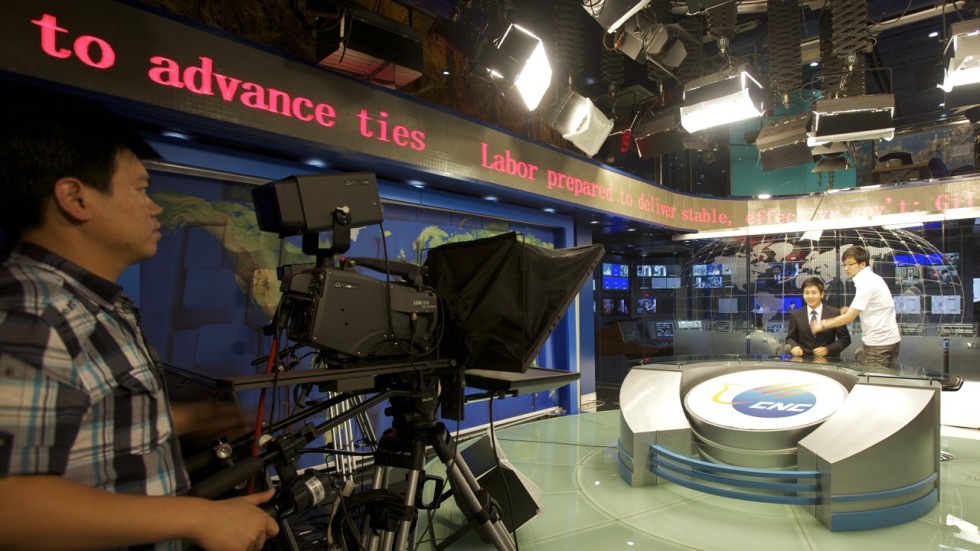Policies have been formulated to improve and
facilitate teaching and learning at all levels, yet there are weaknesses
in the system that need to be urgently addressed.
THE dismal performance of our students in the Programme for
International Student Assessment (Pisa) in 2013, where 51.8 % of our
15-year old students failed to reach even the baseline level for
Reading, Mathematics and Science, has rightly alarmed many concerned
Malaysian parents and educationists.
It bears repeating that the
quality of an education system simply cannot exceed the quality of its
teachers, no matter how many billions of ringgit is used in educational
development plans or blueprints to improve our school system.
Prominent lawyer, politician, columnist and author Datuk Zaid Ibrahim,
could well be expressing the sentiments felt by many informed Malaysians
when he wrote in his book I, Too, Am Malay, that many teachers, are “poor in quality” and the school curriculum is irrelevant while administrators are too political.
The fact that 70% of our English teachers failed to make the grade in
the Cambridge Placement Test speaks volumes of why and how we continue
to witness a decline in English proficiency in our schools and
universities over the years.
If it is true that a large number
of our teachers are incompetent, then policy-makers will have to get the
views of all the major stakeholders, accept sound suggestions from
various quarters, before they attempt to tinker with our school system.
M. Bakri Musa, columnist and author in his book
An Education System Worthy of Malaysia,
mentioned the greatest weakness of all our educational reforms is the
government’s exclusive dependence on in-house or Education Ministry
officers, who have somehow failed to improve the quality of our
education system over the years, in spite of all their grand schemes.
Let’s review how effective, practical or meaningful the educational reforms have been at school level.
Motivating students
When the co-curricular points system was first implemented in our
schools, it seemed like a good way to motivate our students to
participate more actively in sports clubs and societies to make them
well-rounded students.
In the first place, the system was never implemented in good faith.
Students sitting for the Sijil Tinggi Persekolahan Malaysia (STPM)
exams face a serious handicap when it comes to applying for admission to
local universities for some degree courses compared to Matriculation
students, who study for a shorter period of time and sit for their
relatively easy internally-marked exam papers.
And as if things
are not bad enough for STPM students, it looks like the co-curricular
points system was designed to make university admission even easier for
Matriculation students. The system enables them to secure high marks for
co-curricular activities which account for 10% of the entry-score
requirement for public university admission.
In matriculation
colleges, students who participate in co-curricular activities among
hostel block members are awarded marks meant for district level events,
while students who compete in activities in college are awarded marks
that are equivalent to state level grades. When students compete in
inter-college events, they are accorded marks equivalent to that of
national level!
Any wonder why so many SPM students choose not to do their Form Six?
The system is biased as it favours Matricu-lation students over STPM
students. Moreover the chances of STPM students who score 4As getting
courses of their choice at varsity level is also uncertain.
Considering the circumstances, many bright students simply don’t want to continue with Form Six.
Why experience the mental agony of getting 4As in the STPM exams only
to be denied places for courses like medicine and pharmacy?
Let
me reiterate that the STPM is a tougher exam and the co-curricular point
system for matriculation students gives the latter an unfair advantage.
Research suggests that superior learning takes place when
classroom experiences are enjoyable and relevant to students’ lives,
interest and experiences.
As such, it is rather unfortunate that
at a time when our education system is already failing to provide
students with appropriate problem solving, critical and analytical
skills and knowledge content, especially in Science and Mathematics, our
policy-makers see it fit to make all students take up History (now made
a compulsory subject to pass in the SPM exam).
Instead of
learning world history and exposing our students to lessons we can learn
from major historical events, much of our Form Four History textbooks
are devoted to specific topics all in the name of promoting patriotism
and national unity.
And why bother to introduce the SPM open
certification exam in the first place when we have no real intention to
offer our students real flexibility in their choice of subjects and
electives based on their interests, abilities and aptitudes?
In his best seller,
The World is Flat,
Thomas L Friedman, points out that in today’s world, how children are
educated may prove to be more important than how much they have to learn
in school.
If what he says is true, why should we stifle our
students’ initiative, curiosity and creativity by burdening them with
uninspiring and even unnecessary subjects that have made school life
such a dreadful and boring affair.
And yet, despite repeated
calls to scrap Moral Education, such pleas have fallen on deaf ears. It
has been pointed out that Moral Education, instead of exploring how we
can effectively teach and test moral reasoning, only serves to
indoctrinate our students and subjects them to mindless memorisation of
core values.
To make things worse, our policy-makers decided that
learning Moral Education was not good enough; in order to make our
students more civic-conscious and patriotic, they went on to introduce
yet another subject called “Civics and Citizenship” for our secondary
school students from Form One in 2005.
Holistic development
Our national education philosophy emphasises holistic development of
our students. That being the case, won’t Physical Education (PE) play an
important role in producing physically fit and well-rounded students?
And yet with our students experiencing so much stress in their school life, they have to make do with just two periods for PE!
If that is not bad enough, some schools even use PE periods to teach
“more important subjects” like Health Education. And what about our
school-based assessment?
Various quarters have already pointed
out that simply scrapping the Ujian Pencapaian Sekolah Rendah (UPSR) and
Penilaian Menengah Rendah (PMR) exams to introduce the current
school-based system may not necessarily serve to enhance learning and
make school life more enjoyable for students.
When the
school-based assessment system was introduced to schools in 2011, it was
assumed that teachers would be able to assess their students’ abilities
and potential.
But with so many “poor quality” teachers it will
not be fair to assume that they are sufficiently equipped to evaluate
their students based on internally-prepared assessments, that they take
pains to assess their students properly, and that they are unbiased
towards their students.
Well, that’s really a tall order.
Already, we have heard stories from schools of incompetent and
indifferent teachers teaching weak classes and yet awarding their
students Band Six, no less, in their respective subjects!
And as
usual, many schools are already resorting to buying workbooks in the
market instead of getting their teachers to come up with their own
worksheets and materials to assess their students, making a mockery of
introducing the school-based assessment in the first place.
But we can’t blame the teachers, not when they are burdened with so much paperwork and keying data online into the SPPBS (
Sistem Pengurusan Pentaksiran Berasaskan Sekolah).
It is worth noting that our current school-based assessment at the end
of the day, is not much different to the A-B-C-D-E grade system or even
the Percentage Score system. So why should teachers need to waste time
with the banding exercise when in their daily dealings they can easily
discern the band(s) the students actually deserve for the topics taught?
Wouldn’t it be better to reflect on their teaching approaches and
enhance their professional knowledge, rather than waste time with
paperwork and keying data?
It is about time to address the problems facing our education system.
For a start, the government should really grant greater autonomy to
good schools in both urban and rural areas to adopt a broad-based
curriculum, save for a few core subjects under the supervision of the
Education Ministry, to let students learn what they ought to learn in
today’s challenging world.
Get dynamic school principals to
manage such schools and empower them to make decisions on matters
related to school operations with the participation of parents and the
local school communities.
If the principals are allowed to hire
competent teaching staff, and be accountable for their performance, then
we stand a better chance to improve our education system at the school
level, specially when we are in a position to compare the performance of
such autonomous schools with our national schools.
And with so
many parents paying for tuition lessons these days, they would gladly
pay school fees to get their children to study in such autonomous
schools.
When such schools, gain a good reputation, the tuition
syndrome will slowly die and more parents would choose to place their
children in such schools rather than vernacular or international
schools, resulting in a win-win situation!
With the current rot
in the school system, the authorities should no longer be so protective
over their turf. They must have the courage to admit the serious
shortcomings of their policies and display greater commitment to think
out of the box. It is now in the hands of the ministry to make it all
happen.
Contributed by Henry Soon - The Star/Asia News Network
The writer, a retired teacher, is still
passionate about education. He hopes the Education Ministry will be bold
enough to bring about changes for the greater good of students,
teachers and parents.
Related posts:
1. Technologies: A question of talent in Malaysia
2. Malaysia, US, UK and Australia lag in global education rankings as China and Asian countries rise to the top
3. Rightways Technologies: Asian students dominate global exam; Are the Chinese ...
Related article:
China students shrug off US education woes






































